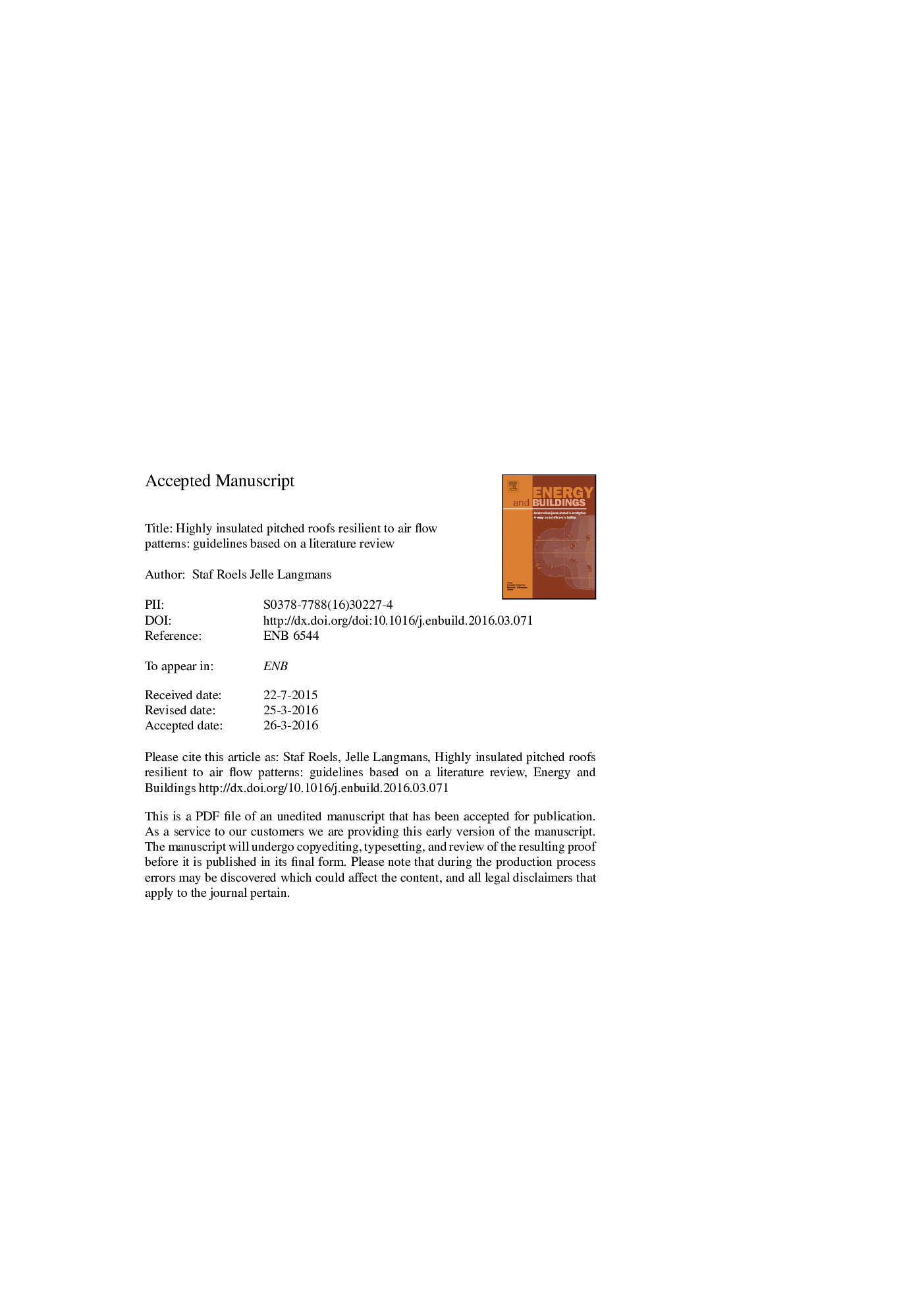| Article ID | Journal | Published Year | Pages | File Type |
|---|---|---|---|---|
| 6730191 | Energy and Buildings | 2016 | 37 Pages |
Abstract
This paper reviews previous research work on the effect of air movement on the heat transmission losses in light weight building components in general and pitched roofs in particular. Air movement in pitched roofs is typically a mixture of three phenomena: (1) in/exfiltration, (2) natural convection and (3) wind-washing. While the importance of air barrier systems to guarantee the thermal and hygric performance by the exclusion of exfiltration is widely acknowledged today, less emphasis is put on the necessity of a continuous wind barrier to prevent wind-washing of the insulation layer. Also the effects of small air leakages around the insulation layer which can trigger natural convection is currently underestimated in practice. Based on findings in the literature, guidelines are put forward on how to construct a pitched roof with a robust high thermal performance.
Related Topics
Physical Sciences and Engineering
Energy
Renewable Energy, Sustainability and the Environment
Authors
Staf Roels, Jelle Langmans,
